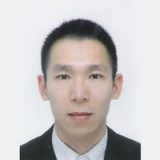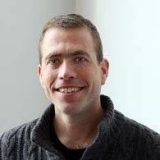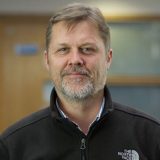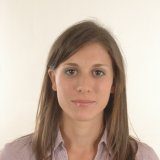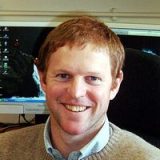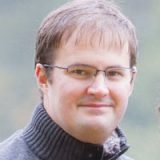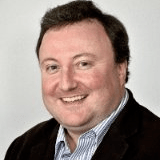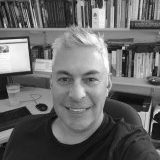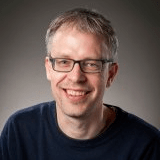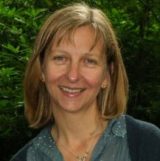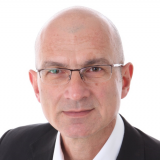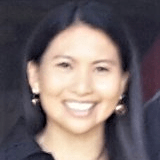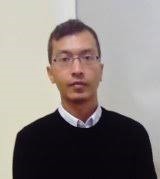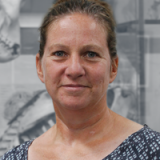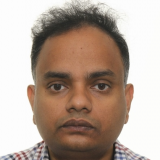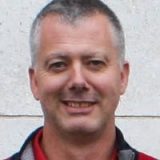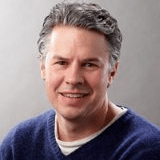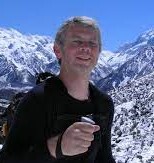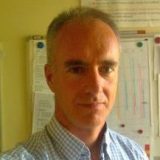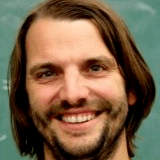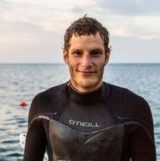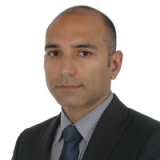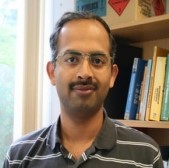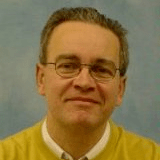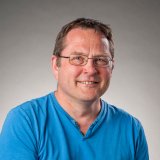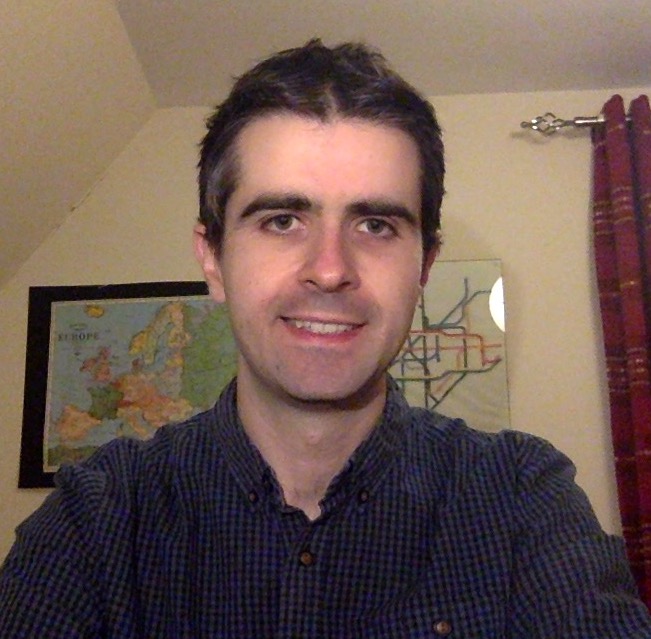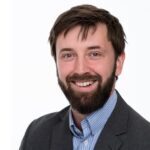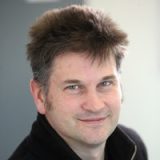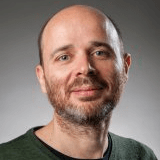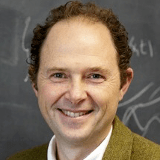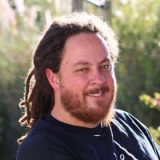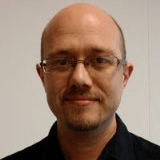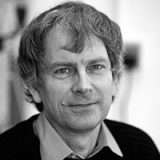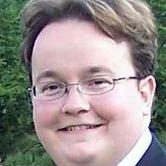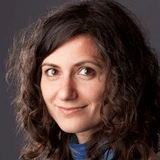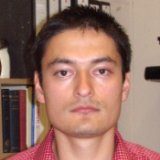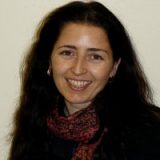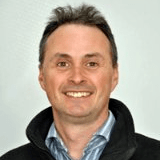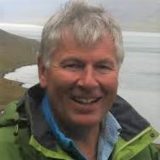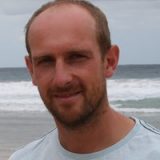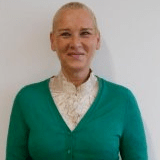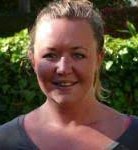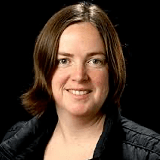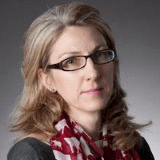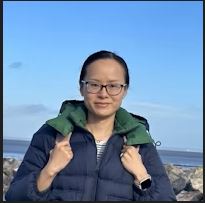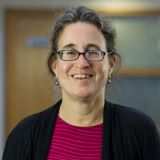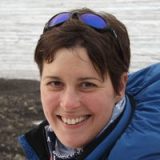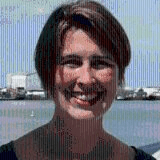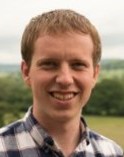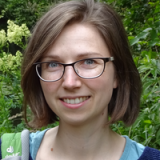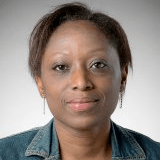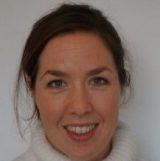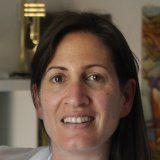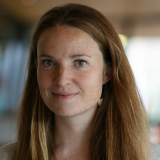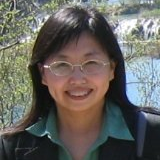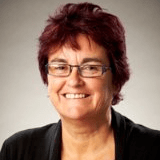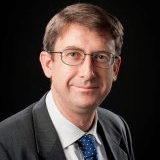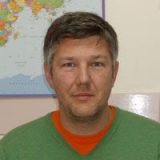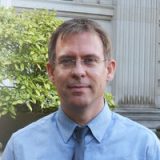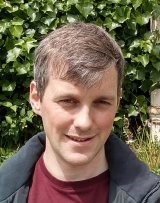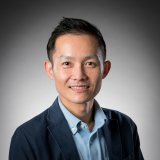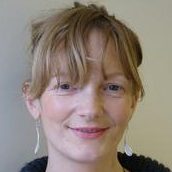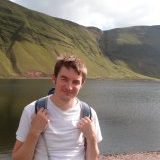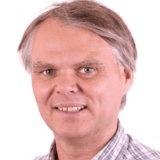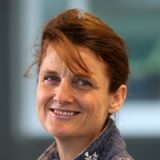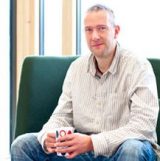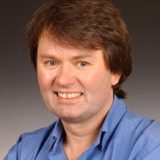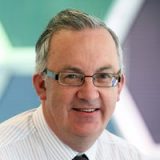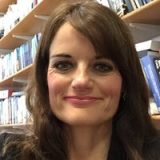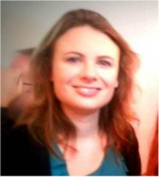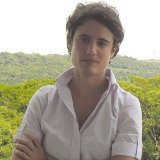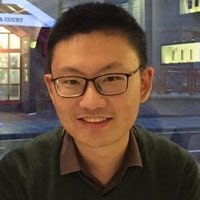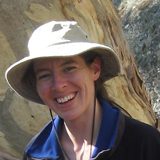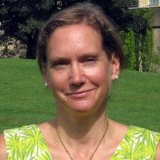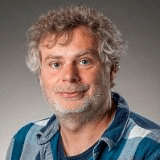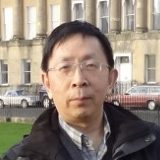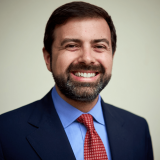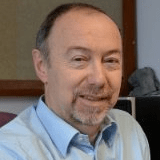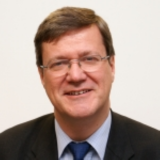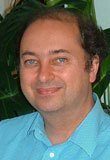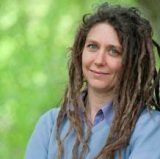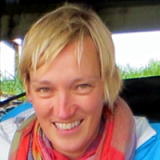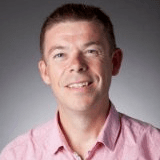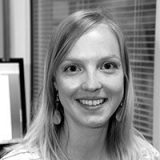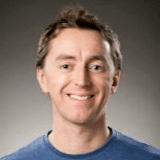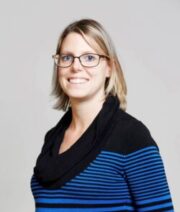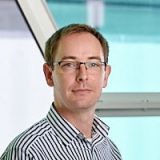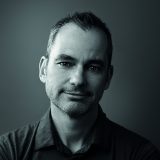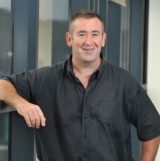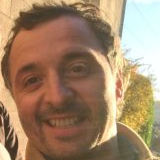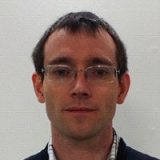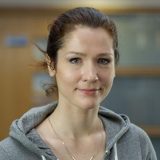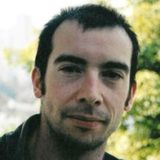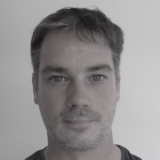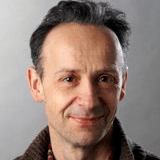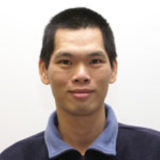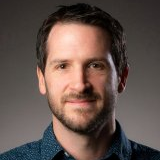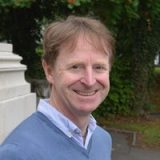Zhihua’s research covers computational fluid dynamics, turbulence modelling, interfacial and multiphase flows, water wave mechanics, hydrodynamics, hydraulics and marine renewable energy.
Yacine Rezgui
Yacine specialises in modelling, data analytics, informatics (semantics), knowledge management; catchment and urban water management; resilience of the built environment to natural disasters; smart cities.
Wouter Poortinga
An environmental psychologist, based in the Welsh School of Architecture and the School of Psychology. Expertise in psychological and behavioural aspects of single-use plastics. Other research interests are in human-environment interactions, including:
environmental risk perception
sustainable behaviours and lifestyles
will gaze
Will research is in antimicrobial resistance in farmed and natural environments, including major elements of environmental sampling and wide-ranging analytical methodologies. This includes AMR evolution in the environment, using in situ and in vivo experiments, landscape scale dissemination of AMR and human exposure and transmission studies. Projects are divided into three main themes: ecology, evolution and public health perspectives. These map onto those identified in successive WHO, EU and UK AMR action plans facilitating interdisciplinary research approaches and joined up thinking.
Victoria Garcia Rocha
Victoria’s research covers materials science, chemistry and engineering of carbon-based composite materials and ceramics.
Valentina Noacco
Valentina’s research interests include the development of tools and workflows to transfer sensitivity analysis methods and knowledge to industrial practitioners. This knowledge transfer aims at improving the consideration of uncertainty in mathematical models used in industry. Her current project aims to transfer methods, tools and expertise on sensitivity analysis to the (re)insurance sector in order to facilitate more informed decisions about the risks being underwritten.
Tristam Hales
Specialist research areas include geomorphology; hillslope processes; vegetation-landscape interactions; landscape evolution; permafrost; landslide hazards.
Tom Beach
Tom’s research covers the data science associated with monitoring and sensing of built environment assets ( including optimisation and artificial intelligence) including the management and integration of disparate data sources.
Tom Arnot
Tom’s research falls into two main areas: the first is sustainable water and waste water treatment, and the second is novel drug delivery systems for healthcare and food applications.
Tim Edmunds
Tim’s work addresses issues of security sector reform, civil-military relations and capacity building, with a recent focus on the maritime environment. His current research focuses on responses to transnational organised crime at sea. Tim is also co-director of the SafeSeas Network along with Christian Bueger.
Thomas Woolley
Thomas’s research areas include mathematical biology, ecology, morphogenesis, reaction-diffusion theory, cellular motion, stochastic dynamics, neurobiology and oncology.
Thomas Kjeldsen
Thomas works on flood frequency, catchments, peak flow, urbanization, design flood, frequency analysis, climate and hydrology.
Thomas Connor
Thomas’s research focuses on pathogen evolution; bioinformatic; computational biology; sequencing; phylogenetics; population genomics; and public health.
tamara galloway
Tamara studies the biological effects of environmental pollutants in human and wildlife populations. Using a systems wide approach to address how pollutants damage ecosystems, how animals evolve tolerance and resistance in polluted environments and what makes some animals more sensitive than others. She has worked with funders to develop a predictive capability of the likely outcome for natural populations of pollutants, such as nanomaterials, micro and nanoplastics.
Stuart Capstick
Stuart’s research examines cross-cultural understanding of climate change and environmentally-significant behaviours.
Steve Ormerod
With a research focus on global change effects on freshwater organisms and ecosystems; river biodiversity and ecosystem services Steve is a leading specialist in riverine and wetland bird ecology.
Slobodan Djordjevic
Slobodan researches the development and application of advanced methodologies and software tools for water management. These include: drainage and floods simulation, impacts of flooding, effects on human health and impacts on road transportation, resilience to diverse extreme weather events in the context of climate change, tidal energy extraction, water quality modelling, river and coastal engineering, water-food-energy nexus, cascading effects between water, waste, energy, transportation and other infrastructure systems, nature-based solutions, and drought risk management.
Siân Griffiths
Siân’s research focuses on the behavioural ecology and the evolution of fish schooling; consequences of climate change for fish behaviour and river ecology; ecosystem quality and the distribution of fish in rivers.
Shunqi Pan
Shunqi’s research covers the physical and numerical modelling of coastal and estuarine processes; prediction of large-scale extreme waves and surge; climate change impacts to the marine environment; coastal defences and flooding and marine renewable energy.
Sheila Samsatli
Sheila’s research interests focus on multi-scale mathematical modelling and optimisation, and their application to engineering problems (such as process synthesis and integration, whole systems design and operation, production planning and scheduling, supply/value chains, location, transportation problems etc). She is interested in applying these ideas to water networks and infrastructure, and within the water-energy-food nexus and the marine environment.
Shams Rahman
I am a hydrologist interested in groundwater dynamics, surface water-groundwater interactions, and the influence of groundwater dynamics on land surface and lower atmospheric processes.
Shailen Nandy
Shailen’s research has focused on aspects of international development, and on poverty analysis and anti-poverty strategies including the problem of multiple malnutrition in young children in West and Central Africa. Interested in social policy and its role in national development strategies in the era of the Sustainable Development Goals.
Sarah Perkins
Sarah’s research examines the role of individuals in disease persistence and invasion; social networks and infectious disease dynamics; citizen science and the use of AI to track disease.
Sangaralingam Ahilan
Sangaralingam’s main interests are in sustainable urban flood risk management and the long-term performance of sustainable drainage systems, using detailed hydrological and hydro-morphodynamic modelling. He is also analysed SME behaviour in flooding aftermath.
Ryerson Christie
Ryerson’s main research interests focus on the application of critical security studies to the analysis of human security, peacebuilding, and natural disasters. My work has focused on how these shape the relationships between local communities, civil society and the state. His research has had a geographic focus on Southeast Asia and Cambodia.
Rupert Perkins
Rupert is a specialist researchers in algal photophysiology and productivity; taste and odour compounds in reservoirs; catchment management; variable chlorophyll floursecence and sediment/water column biogeochemistry.
Roy Maconachie
Roy’s research in Sub-Saharan Africa explores the social, political and economic aspects of food production and natural resource management, and their relationships to wider societal change.
Ross Woods
Ross’s research interests cover topics including hydrology, water resources, hazards and hydroclimatology.
Ross Brown
Ross’ research focuses on refining environmental risk assessment approaches to safeguard aquatic ecosystems from pollution and to facilitate the sustainable development of aquaculture.
Rod Wilson
Rod is a comparative physiologist. He aims to provide a more holistic understanding of homeostasis in aquatic animals, both fish and invertebrates, freshwater and marine. This includes studies of how anthropogenic and natural environmental changes impact upon physiology and behaviour in the wild, and how to use physiology to help improve the sustainability of aquaculture (including animal growth efficiency and health, pathogen/parasite resistance, and farm effluent output). He also studies the reverse process: how physiological processes in aquatic animals can influence the regional and global environment in freshwater and the oceans.
Robert Watson
Robert’s research focuses on RF engineering, antennas, radio propagation and GNSS.
Robert Scheichl
Robert’s interests are in the design and analysis of efficient and robust parallel numerical methods for engineering and physical problems with heterogeneous material properties that vary over multiple scales. This is typical in energy and environmental applications, but also in material science and manufacturing. He is particularly interested in multilevel and multiscale methods for partial differential equations with strongly varying and high contrast coefficients, in particular domain decomposition and multigrid methods, preconditioners for systems of PDEs, iterative eigensolvers, and multiscale discretisation techniques with applications in oil reservoir simulation, radioactive waste disposal, numerical weather and climate prediction, novel optical materials or composite materials. More recently his particular focus has been on the interface between computational mathematics and statistics/probability.
Robert ellis
Rob’s research focuses on adaptation and acclimation in animals exposed to environmental change. He’s interested how the mechanistic understanding of animal physiology can be used to improve the productivity and sustainability of aquaculture in a wide range of production settings, and how aquaculture can be used to help secure future marine ecosystems in the face of climate change impacts.
Rich Crane
Rich’s key research and teaching areas are extractive metallurgy, materials science, nanotechnology and applied geochemistry for a range of applications including the development of novel mining techniques, mine site reclamation, waste treatment, water treatment and contaminant transport.
More information on Rich’s institutional profile
Rhys Jones
A specialist in herpatology, parasitology, evolutionary biology and science communication assessment. Rhys works extensively with the media.
Rhoda Ballinger
Rhoda specialises in coastal and estuarine management; marine environmental management and coastal management education
Reza Ahmadian
Reza’s research includes flood risk management including: flash flood and hazard, Sustainable Flood Management, evacuation planning,
water quality and sediment transport modelling. His work includes modelling bacteria, viruses, nutrients and emerging pollutants, monitoring for bathing water and aquaculture sites, warning and autonomous systems, water security.
Raziyeh Farmani
Raziyeh specialises in urban water systems modelling, water resources management and asset management and has expertise in multi-objective optimisation of water networks. Her research interests covers evolutionary optimisation, artificial intelligence and data mining.
Rafael Rosolem
Rafael is an ecohydrometeorologist with an interest in understanding the processes and interactions that happen in the soil-vegetation-atmosphere domain, in particular how soil moisture and evapotranspiration are interconnected. He combines hydrological and land models with field experiments available from different regions facing environmental pressures such as droughts and deforestation. His current interests include improving predictions of extreme hydrometeorological events in developing countries (Africa and South America) where data availability is limited.
Prakash Kripakaran
Prakash is academic lead for the civil and structures research group at Exeter. His research interests are broadly in the design and management of civil infrastructures, such as bridges. He has significant experience in: the experimental and numerical modelling of flow and scour (erosion) around hydraulic structures such as bridge piers; the use of applied computing techniques including Building Information Modelling (BIM) for construction automation and design; the development of finite element modelling-based and data-driven strategies for interpreting measurements from bridge structural health monitoring; and the application of optimization methods for structural design problems (e.g. design of trusses and moment-resisting steel frames).
Philippe Blondel
Philippe’s research focuses on marine acoustics and innovating imaging, seabed and habitat mapping, ambient noise underwater, marine renewable energies and space imaging (planetary and asteroid studies, situational awareness, space debris).
Philip Salmon
Philip investigates the atomic scale structure and dynamics of liquids and glasses. The systems that he investigates include water and both aqueous and non-aqueous solutions, where subjects of interest include the nature of ion-solvation and the properties of hydrogen bonded networks (e.g., quantum effects) under ambient or extreme (hydrothermal) conditions. Other systems of interest include oxide and chalcogenide glasses at both ambient and extreme (high pressure and temperature) conditions, and the adaptation of these glasses for photonic and battery applications. Extensive use is made of both neutron and x-ray scattering methods. Sample preparation tools include a high-pressure and temperature press, and sample characterisation methods range from calorimetry to hardness testing.
philip davies
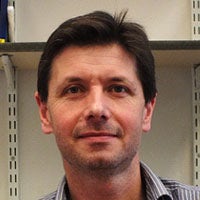
Philip’s primary interest is understanding how a surface can modifies or direct a chemical reaction. Work has been concerned with understanding the reactions of molecules at surfaces characterised both chemically and structurally at the atomic level. Other aspects of our work include studying the mechanism of photocatalysis.
Philip Cooper
Philip studies the interface between accounting and the environmental impacts of economic activity (how non-financial reporting at the corporate level can be optimised to support decision-making, including through the use of values derived from environmental economic techniques). Philip extends perspectives on the accounting entity and environmental impacts, considering aggregates such as economic sectors and countries (a recent pan-European, cross-disciplinary EC Framework VI project on the marine environment, and the role of the accountant in achieving sustainable development).
Peter Watson
Peter’s research focuses on climate events and climate change, atmospheric weather systems, hazard and risk datasets. His work with the climateprediction.net team has produced large atmospheric model simulation datasets at a resolution high enough to resolve extratropical storm systems, with the potential to drive hydrological models in the future.
Peter Randerson
Peter’s research covers pollutant removal and nutrient recovery from effluents and waste water (biofiltration), using constructed wetland systems and the production of biomass crops.
Peter Melville-Shreeve
Dr Peter Melville-Shreeve has worked in consultancy, startups and academic roles over the last decade. He works closely with the Chartered Institution of Water and Environmental Management’s (CIWEM’s) policy team to support sustainable water management systems and chair’s CIWEM’s Water Reuse Task & Finishing Group. Much of Peter’s early research focusses on rainwater management systems and the need for dual purpose designs – which can mitigate droughts and floods. His thesis highlighted the opportunities for Internet of Things technologies to be harnessed to reduce water demand AND manage stormwater flood risk. He consequently founded and exited a technology business which developed analytics and control systems to enable such technologies to be implemented at a range of scales.
Peter Kille
Peter’s primary research focuses on omics – genomics, proteomics, metabolomics and heavy metals in biological systems.
His research includes diatom assay, reservoir ecology and cyanobacteria population structure, nutrients , eDNA and the ecology of sand filters and chemical breakdown.
Peter Coates
Peter is an environmental historian, mainly of the US and UK, but also interested in continental Europe and beyond. His research includes creatures of watery environments (mosquitoes, eels and aquatic and semi-aquatic nonnative invasive species such as American signal crayfish, North American muskrats and American mink), natural history film-making and marine environments.
Penny J Johnes
Penny is an environmental scientist by background who has worked on the biogeochemistry of aquatic systems, and the impacts of food production and environmental change on the quality of inland and coastal waters for the past 25 years. She has interests in environmental pollution, risk, adaptation, policy and management, and in the challenges we face in resolving the inherent conflicts between meeting demand for water, food and energy security.
Pedro Estrela
Pedro’s research focuses on the development of label-free electrical biosensors and chemical sensors for a wide range of applications such as medical diagnostics and environmental monitoring. His research interests include label-free electrical detection of biomolecular interactions, biologically sensitive field-effect devices, detection of DNA, proteins, bacteria, cells, ions and small molecules, electrochemical impedance spectroscopy of biological systems, use of solid state devices in aqueous environments, surface biofunctionalization, electronic addressing of microarrays, nanobiosensors and microfluidics.
Paul Milewski
Paul’s research focuses on internal waves in the atmosphere and ocean, surface water waves and the modelling of physical and biological processes.
Paul Bates
Paul is a hydrologist by background, a Fellow of the American Geophysical Union and a Royal Society Wolfson Research Merit Award holder. He has widespread research interests in risk, resilience, uncertainty, governance and decision-making in relation to natural hazards and global water issues.
Patricia Sanchez-Baracaldo
Patricia’s research aims to understand how cyanobacteria (also known as blue-green algae) have contributed to global nutrient cycles (e.g., nitrogen, carbon, oxygen) through geological time.
Pablo Ouro Barba
Pablo’s main area of expertise relates to the computational modelling in offshore renewable energy (tidal stream turbines and wind turbine farms); turbulence in environmental flows and hydraulics; or multi-phase flows: Eulerian-Eulerian (free-surface) and Eulerian-Lagrangian (sediments). He also works on the development of river turbine arrays for developing countries.
Pablo Orozco-terwengel
Pablo’s research covers population genetics; genomics; bioinformatics; statistics; landscape genetics; phylogenetics; conservation; agriculture; aquaculture; and wildlife.
Owen Jones
Owen’s research areas include stochastic modelling and simulation; hillslope surface runoff; quantifying the impacts of climate change; sustainable water usage and operational modelling.
Nina Wedell
Nina is an evolutionary biologist with research interests focused on the evolutionary ecology of sex. She has worked extensively on various aspects of sexual selection and sexual conflict, in particular on the role of selfish genetic elements in reproductive biology.
Nick McCullen
Nick is interested in how the complex interactions between the various components, such as buildings, technology, the environment, and people, result in the energy consumption of the built environment.
Nicholas Pidgeon
Nichola’s research focuses on risk perception and its communication in a range of fields including the environment, science, technology, public policy, sustainability and perceptions of climate change and energy futures.
Nicholas Howden
Nicholas’ research aims to provide a better understanding of how climate, land use and land management affect the quantity and quality of surface and groundwater over the short and long term. Interests include the diffuse transport of nitrate from agricultural watersheds.
Mirella Di Lorenzo
Mirella’s expertise lies at the interface of bioelectrochemistry, microengineering, microfluidics, sensing technology and material science. Her work addresses development challenges such as the water-energy-food security and global health, by developing eco-friendly and sustainable solutions affordable to all. Her research focuses particularly on the development of innovative biological fuel cell (BFC) designs for either energy harvesting, water quality monitoring or healthcare applications and on low-cost designs that can lead to devices affordable everywhere in the world. As such, she explores the uses of recyclable, biodegradable and low-cost materials.
Miguel Rico-Ramirez
Miguel’s research interests fall in the area of flood forecasting with radar and numerical weather prediction models for the real-time prediction and management of severe storms.
Michiel vos
Michiel combines approaches from microbiology, evolutionary ecology and population genomics to study bacterial evolution, focusing on horizontal gene transfer, sociomicrobiology and pathogens in the environment. Key projects include exploring the ecological drivers of antimicrobial resistance and virulence in aquatic bacteria.
Michaela Bray
Michaela specialises in numerical weather modelling; real-time flood forecasting (raingauge network analysis, real-time updating) as well as remote sensing and Geographic Information System; climate change hydroinformatic technologies.
Michael Singer
Michael’s research covers ecohydrology; drought and water scarcity; forest health; stochastic hydrology; climate change; floods; Sediment transport; hydrology and geomorphology.
Michael prior-jones
Mike is an electronic engineer with research interests relating to the development of new instruments for field data collection particularly in glaciology.
Michael Harbottle
Michael’s research interests include biotechnology in contaminated land remediation; lectrical properties of soil and groundwater; resource recovery from waste and biogeotechnics.
Michael Bird
Michael works on biochemical and food process engineering, interaction between surfaces and bioproducts (stainless steel equipment and in pressure driven synthetic membrane systems), fouling and cleaning of surfaces. Mike’s work has a strong relevance to improving product quality, and reducing downtime, water and chemical consumption.
Max Munday
Max’ research focuses on economics of recreational angling, ecosystem services, hydropower; Welsh economy; inward investment; tourism economics; regional economics and policy and corporate restructuring.
Martin Genner
Martin researches spatial and temporal patterns of biological diversity, primarily in aquatic environments with a focus on European marine and African freshwater fish. His current projects include ‘Characterising the biodiversity of freshwater fishes of Africa using environmental DNA metabarcoding: A case study within the Kilombero river system of Tanzania’ and ‘SeaDNA – Assessing marine biodiversity and structure using environmental DNA: from groundtruthing to ecosystem structuring’.
Mark Cuthbert
Mark’s research groundwater recharge; surface water-groundwater interactions; groundwater flow and transport processes; climate-groundwater interactions and paleohydrology.
Marion Harney
Marion’s main research interests are the history and theory of historic buildings, cultural heritage, designed and cultural landscapes, World Heritage Sites and their conservation, with a particular interest in eighteenth century architecture, landscape and literature and how literature reflects and shapes the way in which we see the landscape and the environment.
Marianna Dudley
Marianna is an environmental historian of modern Britain with a focus on environmental change and its impacts on communities, places, and politics. Her current research explores wind and wave power, and the rise of renewable energy technologies more broadly, in the twentieth century.
Marian Yallop
Marian’s current research covers various aspects of the structure and functioning of freshwater, estuarine and marine ecosystems with a particular focus on microbial ecology.
Marcelle McManus
Marcelle’s research focuses on sustainability, whole systems life cycle impacts of products and systems – particularly low carbon technologies and energy systems. Marcelle works on both technology innovation and improvement and life cycle and whole systems methodological development. Marcelle is working to identify the least environmentally damaging mechanisms to replace our current reliance on fossil fuels. Marcelle has a particular interest in emerging technologies and systems and the development of methodologies to support analysis and assessment.
Lucy O’Shea
Lucy’s research is in the area of waste management. Her disciplinary background is economics, so she is interested in how regulation can incentivise pro-environmental behaviour. She is also interested in the effects of regulation, e.g. how different measures interact with each other, as well as, their effects on industry.
Lu Zhuo
Lu’s research focuses on simulating and assessing extreme hydrometeorological events like floods and heat waves, particularly in relation to climate change. Lu employs satellite remote sensing, environmental modelling, and machine learning to analyse urban and watershed contexts.
lora fleming
Lora is the director of the Centre for Environment and Human Health and chair of oceans and human health at the University of Exeter Medical School. She is a board certified occupational and environmental health physician and epidemiologist with over 30 years of experience and expertise in environment and occupational exposures and human health research and training.
Liz Holcombe
Liz has a research background in dynamic slope hydrology and stability modelling with a particular focus on urban landslide risk management in the Humid Tropics. Her wider research interests include decision-making in uncertain environments, ‘building back better’ for resilience and sustainability, and community-based approaches.
Liz Bagshaw
Liz’s particular research interest is in biogeochemical processes in the cryosphere, and in the development and testing of new technologies to monitor them. She has worked in Antarctica and Greenland, developing new methods for measuring aquatic biogeochemistry in glacial environments and monitoring the impact of physical processes on microbial communities through geochemical changes in meltwater.
Linda Newnes
Linda’s research focuses on whole life value analysis (monetary, environmental and societal costs) from concept design through to the in-service/in-use phases.
Lee Bryant
Lee researches oxygen in natural systems and its influence on water quality. Lee works on aerating reservoirs in partnership with Jersey Water, Welsh Water and Bristol Water, looking at manganese and nutrients. Lee also works with modellers on predictive capability. Finally, some of Lee’s work is conducted in Africa (Sierra Leone) on urban agriculture schemes involving constructed wetlands.
Laurence Hawker
Laurence’s research interests focus on hydrodynamic models, elevation data, geostatistics and remote sensing. His research focuses on data-sparse areas, with current projects including FLICH: Floods and livelihoods in the Central Highlands of Vietnam, HyFLOOD: Developing Next Generation Hydrodynamic Models in Africa, as well as supporting disaster response to recent tropical storms in Central America and South-East Africa.
Laura Purvis
Laura’s research included supply chain management strategies; agile and resilient supply networks; flexible supply systems and supply networks design.
Kirstin Strokorb
Kirstin’s research focus lies on multivariate, spatial and temporal dependence phenomena in extreme value theory providing theoretically sound procedures for the quantitative assessment or rare and typically hazardous events (as good as possible, knowing the limitations is also an important issue).
Kemi Adeyeye
Kemi researches risks, opportunities and trade-offs in the urban and rural environments. Kemi’s work considers a holistic view of problems and identifies best solutions to issues in terms of technology, cost, management and adaptability. Kemi’s research interests include integrated design and planning, architectural technology, sustainability and resource efficiency (water) and resilience in modern and heritage contexts.
Kelly thornber
Kelly’s research focuses on the global threat of antimicrobial resistance and developing more sustainable aquaculture practices, both in the UK and globally.
Katerina Michaelides
Katerina’s research focuses on rainfall-driven processes at the Earth’s surface, including overland flow generation, sediment transport, erosion and biogeochemical fluxes with a specific focus on dryland basins where water and nutrients are greatly limited. Current projects include ‘Drought Resistance in East African Dryland Regions’ and ‘Re-work of Mobile Phone App Development for Drought Adaptation in Drylands’.
Katerina Kaouri
Katerina’s research covers deterministic and stochastic modelling; fluid mechanics; mathematical biology; asymptotic methods; aquifer and water resource management modelling
Kate Baker
Based in the Centre for Water Systems, Kate is the lead for community engagement on two European Union funded projects, NextGen (Living Labs for Circular Economy in the Water Sector) and LOTUS (International Cooperation for Low-cost innovative Technology for water quality monitoring and water resources management for Urban and rural water Systems in India).
Junjie Shen
Junjie works on contaminant removal, capacitive deionisation and water treatment systems.
Jun Zang
Jun works on investigating violent wave impact on coastal and offshore structures, developing marine renewable energy, and developing advanced numerical methods for accurately modelling coastal & urban flooding and wave-structure interaction.
Julie Barnett
Julie works within social science and focuses on human behaviour and communication. Julie’s research concerns early warning systems and people’s judgment/ understanding of risk, and upstream/up pipe thinking. Julie is interested in designing new technologies that account for human acceptabilities.
Julian Padget
Julian’s research focuses on multiagent systems; agent-based simulation; sensor architectures; IoT; energy and air quality monitoring; distributed ledgers; fusing symbolic and statistical AI; policy modelling; security and privacy.
Jonathan Dawes
Jonathan’s research focuses on applied dynamical systems, bifurcation theory and dynamics with symmetry, pattern formation, mathematical biology and fluid mechanics.
Jonathan Bartley
Jonathan’s expertise covers heterogeneous catalysis and the design and synthesis of mixed oxide materials for use as catalysts and supports for different reactions. His research is mainly focussed on oxidation reactions including developing microwave catalysis to remove pollutants from water.
Jon Anderson
Jon’s research focuses on water worlds and surfing places; geography, place & culture; including literary geographies.
John Morgan
My research interests lie in early modern environmental history, with a focus on histories of water and flooding. I am engaged in several projects related to these research interests – on early modern flooding; internal drainage boards; and environment and emotion – for further information see link below.
John Chew
John’s research focuses on green cleaning (fouling and cleaning of surface layers in the food, textile, polymer processing, membranes and biotechnological industries). John works on the design and development of multi-functional adsorbent structures for air purification. John also studies the hydrodynamics and interfacial interactions of small scaled fluid particles with their continuous phase during the course of their movements in a piece of equipment (in processes such as wastewater treatment, fermentation and surface cleaning).
Joe Devine
Joe’s research focuses on poverty, inequality, vulnerability, and South Asia.
Joanie Willett
Joanie is interested in the complex inter-relationship between identity, the economy, and the environment and exploring sustainable communities through theory, practice, policy and governance.
Jo Cable
Jo’s research covers experimental parasitology; host-parasite dynamics; fish parasites; ecosystem impacts of invasive species; water-borne human pathogens and zoonotic infections; imaging; molecular ecology; cell biology and fieldwork with aforementioned research areas.
Jemma Wadham
Jemma’s research interests cover hydrological and biogeochemical processes that occur within glacier and ice sheet systems, and in their fore fields and which have a potential regional or global impact. She is currently working on various water projects.
Jeff Neal
Jeff’s research interests include the development of hydraulic models and the assimilation of observations with such models across and range of spatial scales. He also researches support for flood risk management, which includes work on modelling flood hazard in urban areas and methods to increase the computational efficiency of hydraulic models.
Jannis Wenk
Jannis’ research investigates both physical and chemical water treatment, including developing more efficient technologies for gas transfer, investigate novel types of process combinations in engineered and nature-oriented treatment scenarios, such as constructed wetlands, and to further explore oxidative water treatment for example, ozonation, UV-light and radical induced processes as an important step to remove aqueous contaminants, pathogens and avoid spread of antimicrobial resistance. Current research in his group also investigates fate of microplastics in constructed wetland and separation technologies for microplastics.
Jan Hofman
Jan’s research focuses on sustainable solutions in the water cycle, sustainable water management, and water security. Jan also studies the origin, fate and abatement options for emerging contaminants, thermal energy recovery from water and wastewater and resource recovery from wastewater and water treatment residuals. Finally, Jan’s work involves water demand and sewer modelling and water treatment.
Jamie stevens
Jamie is an evolutionary biologist with interests in molecular ecology, population genetics and evolution. Two key strands are fish population genetics, and parasite systematics and evolution. He focuses on questions in the field of population/conservation genetics, with particular emphasis on applying knowledge of population genetic process to the management and conservation of Atlantic salmon and trout, and a variety of marine organisms, including sea fans and lobster, with the aim of understanding gene flow and connectivity in relation to the design and designation of marine protected areas.
Ivan Astin
Ivan’s research interests lie in the remote sensing of the atmosphere and ionosphere using radio signals.
Isabelle Durance
Isabelle’s specialist research covers freshwater ecosystems; biodiversity; ecosystem services; climate change; environmental change, landscape ecology and catchment science.
ilya maclean
Ilya is an applied ecologist interested in climate-vegetation interactions at the scales relevant to management and decision-making. He has expertise in microclimatology, remote-sensing and fine-scale hydrological modelling.
Ian Vaughan
Ian’s research areas include community ecology; long term ecological changes in British river systems; data analysis and modelling; multiple stressors; land use, climate, hydromorphology and river organisms and trophic interactions.
Ian Hall
Ian’s climate change; applications of palaeoclimate proxy reconstruction; marine sedimentology and historic oceanic and climate variability.
Ian Bateman
Ian is an environmental economist, interested in ensuring sustainable wellbeing through the integration of natural and social science knowledge within decision making and policy. Particular interests lie in the fields of quantitative analysis, integrated modelling and the valuation of non-market benefits and costs.
Hefin Jones
Hefin’s research examines trophic interactions in terrestrial and aquatic environments (and the effect of climate change on these); soil biodiversity; population and community ecology.
Heather Buss
Heather has expertise in low-temperature geochemistry and biogeochemistry with a focus on weathering and mineral nutrient cycling in soils. Specific research goals include resolving rates of mineral weathering and soil formation and quantifying feedbacks between weathering, erosion, and biology in the critical zone. The extreme complexity of the critical zone gives rise to the need to identify how spatial and temporal heterogeneity in physical, geochemical and biological properties impacts critical zone mineral nutrient cycles.
Hannah pitt
Hannah’s research focuses on the community use of blue-greenspaces, their benefits and what prevents people accessing them; current project work with Canal and River Trust.
Guy Howard
Guy’s research interests cover the resilience of sanitation systems to climate change, decentralised treatment systems, barriers to disease transmission and burden costs, cryptosporidium genomics, water and environmental health, focus on smaller rural communities in UK and nationally, politics around transboundary rivers, and hydropower.
Guangtao Fu
Guangtao’s research is focused on developing and applying new computer models, data analytics and artificial intelligence tools to tackle urban water challenges in water supply resilience, network leakage, flood risk, urban stormwater and wastewater management.
Gillian Bristow
Gill’s research covers regional economic development; regional economic resilience; local and regional competitiveness; and regional policy.
Gemma coxon
I am a Lecturer in Hydrology within the Hydrology Group in the School of Geographical Sciences. My research focusses on understanding and predicting hydro-climatic extremes (floods and droughts) in changing environments. My expertise centres on building, applying and evaluating hydrological models for the improved simulation of water systems from local to continental scales across large samples of catchments.
Gabriel Yvon-Durocher
Gabriel researches the effects of environmental change on the structure and functioning of ecosystems (which comprise groups of species, their interactions with one another and with the physical and chemical environment in which they exist). His work spans multiple levels of biological organisation, from sub-cellular biochemistry to the dynamics of ecosystems, and searches for similarities across aquatic and terrestrial systems. The ultimate goal of his work is to develop a predictive ‘tool box’ to forecast how ecosystems will change in a world increasingly dominated by humans and the oceans.
Frank Marken
Frank’s research involves electrical chemistry and exploring the use of new materials. He also studies porous polymers / membranes to enable ion transport. Frank focuses on biological membranes and researching and mimicking their operation. Frank also work on desalination and the use of energy to remove salts.
Frank Hailer
Frank is an evolutionary biologist working at the interface of genomics, molecular ecology and conservation biology. Research interests are broad, focussing on surveying genetic variation within and among species to infer key processes in ecology and evolution, such as speciation, adaptation, introgression and population structuring.
Francesca Pianosi
Francesca’s research interests include the application of mathematical modelling to advance the understanding and support the sustainable management of human-environment systems, and in particular water resource systems.
FEng Mao
Feng’s research interests lie in the intersection of water, ecosystems, society and technologies, focusing on three main themes: (i) hydro-socio-ecological systems under change, (ii) resilience and environmental hazard, and (iii) innovative data technologies for the environment and development. He also works on low-cost sensor networks and participatory monitoring in a sustainable development context.
Eshwar Mahenthiralingam
Esh’s research includes pathogenesis and ecology of antibiotic resistant Gram-negative bacterial opportunistic pathogens. In addition his work covers bacteria which cause industrial contamination and are prevalent in water, antibiotic producing bacteria and genomics and population biology bacteria.
Erica Hendy
Erica is the Bristol lead on the EU training network grant for 15 Early Stage Researchers (PhDs) coordinated by Willem Renema, Naturalis (Netherlands) and involving 12 institutes. Using a variety of paleo-ecological and present-day data, the 4D-REEF project will investigate the hypothesis that turbid coastal environments in SE Asia provide a refuge for coral reefs in periods of warm climate.
Emma Mckinley
Emma’s research covers marine social sciences, public perceptions of marine and coastal systems, social and cultural values and their role in marine and coastal governance, marine planning, blue growth and coastal communities.
Emma Emanuelsson Patterson
Emma analyses, optimises and designs chemical, biochemical and photocatalytic reactions and reactors. Her work combines in-situ reaction analysis techniques with traditional reaction investigation methodologies and mathematical analysis. In combination with reactor design, this allows for the development of novel and environmentally sustainable processes. Emma’s research includes 3D printing to develop an efficient, portable and low-cost continuous system for the treatment of contaminated drinking water. Emma also works in the optimisation of immobilisation protocols; investigation of reaction kinetics both experimentally and theoretically; reaction design and application of microbial tools (such as fluorescence in-situ hybridisation) applicable to wastewater treatment, food and the chemical and pharmaceutical industries.
Elizabeth chadwick
Freshwater aquatic systems, particularly the Eurasian otter and British amphibians; spatial ecology; contaminants; populations; pathology; Otter Project
Edward Feil
My research interests lie in using sequence data to study bacterial pathogens, both from a point of view of managing infections (molecular epidemiology) but also in terms of understanding fundamental evolutionary dynamics.
Eduarda santos
Eduarda is an environmental biologist investigating reproductive development and function and the susceptibility of these processes to disruption by environmental stressors. Her research focuses on fish and has ranged from investigating the endocrine control of reproduction to addressing the population level effects of chemical exposure for wild fish, using systems biology strategies.
Devin Sapsford
Devin’s research focuses on minewater treatment technologies; recovery of metals from waste and biogeochemistry.
Dawei Han
Dawei’s research interests include real-time flood forecasting, flood risk assessment, water resources management, GIS and remote sensing, natural hazards and environmental engineering.
Davide Mattia
Davide works in the application of membrane science – increasing their lifetime, reducing fouling, 3D membranes, chemical treatment and plant shutdowns. Davide’s research also focuses on the novel water treatment in waste and drinking water, e.g. photo-catalytic foams – a tertiary treatment to remove emerging contaminants (drugs etc). Finally, Davide studies the use of cellulose micro-beads to replace plastic in treatment systems.
David Leak
David work on microbial metabolic engineering for production of chemicals from renewables, and bioprocessing for biopharmaceutical production. David is also interested in applied biocatalysis.
DAVID BUTLER
David’s research area is urban water management, including sustainable and resilient water systems, integration and control and water-energy-carbon interactions.
Dave Gordon
Dave holds the posts of Professor of Social Justice, Director of the Bristol Poverty Institute and Director of the Townsend Centre for International Poverty Research at the University of Bristol. He provides research leadership for multidisciplinary poverty relevant research and advised the World Health Organisation on measurement issues concerning water and sanitation access and policy in low and middle income countries.
Daniel Slocombe
Daniel’s research includes studying microwave activation of catalytic processes, synthesis of functional oxides, dielectric spectroscopy and new methods using magnetic resonance phenomena.
clare saunders
Clare researches social movements, protest and environmental politics. Her work has been particularly focused on environmental and global justice movements, although she has recently been engaged in a pan-European study of protest on a range of issues. Her current work looks at pro-environmental behaviour change – looking especially at energy use and clothing – and climate change policy networks.
Claire Earlie
Claire’s research covers coastal geomorphology; nearshore hydrodynamics; rocky coasts; coastal cliff erosion; natural hazards; in situ and remote sensing data.
Christopher Frost
Christopher’s research involves creating new chemical tools for catalysis and biosensing.
Christopher Bear
Christopher’s research considers the relationships between humans, animals and technologies; recreational fisheries; aquatic geographies and the use of insects as food and feed.
Christina Demski
Christina’s research focuses on risk perception and communication; public responses to emerging and complex socio-technical issues; public attitudes and acceptability towards environmental and energy issues.
chris lowe
Chris is an aquatic Microbial Ecologist (mainly marine). He looks particularly at algal bloom impacts on shellfisheries (e.g. mussel farms) and reservoirs. He is an expert in Cyanobacteria, working with Canadian partners. His focus is on ecological implications rather than applied science. He has close ties with Plymouth Marine Laboratories, where single cell culture takes place and linked to genomics.
Chris Chuck
Chris’ research is multidisciplinary and investigates renewable alternative fuels and bioproducts. The aim is to develop this research into a sustainable biorefinery where fuels, chemicals and animal feed can be produced economically without impacting heavily on food and fresh water resources.
Chris Blenkinsopp
Chris works within coastal engineering. His research focuses on wave/beach (low cost protection systems for developing countries), wave mechanics / sediment movement, and sea level rise and coastal protection.
Charlotte Lloyd
Charlotte’s research is driven by a passion to address key questions surrounding the origins and fate of human and agricultural wastes in terrestrial systems, particularly in relation to their delivery from land to water bodies. Her work spans a wide variety of scales ranging from chemical, physical and biological processes ultimately integrated to the catchment level.
Her approach is to use cutting-edge analytical techniques, including molecular scale chemistry to trace hydrological and sediment pathways and to enhance understanding of the transport of organic nutrients and anthropogenic organic compounds in the environment. To date work has focussed on the impact of inputs from agriculture, such as fertilisers and other human contributions, including sewage treatment works. She uses both laboratory experimentation and field data collection and data modelling techniques, as this offers unique opportunities for exploring the impacts of various agricultural practices on the environment.
Charles tyler
Charles is a reproductive physiologist and environmental biologist. His research interests include mechanisms of endocrine disrupting chemicals and nanoparticle ecotoxicology and assessing population level effects of contaminants in wildlife (primarily fish).
Cedric Berger
Cedric’s research covers the understanding of the epidemiology of diarrheal disease in UK and in countries with low income as well as exploration the relationships between enteric pathogens and the environment.
More information on Cedric’s institutional profile.
.
Catrin Williams
Catherine has multi-disciplinary research interests, from pure microbiology to physico-chemical techniques and microwave engineering. Her work addresses important research themes, such as antimicrobial resistance, biomedical imaging and bioelectromagnetics.
Catherine Wilson
Catherine’s research focuses on environmental hydraulics, including both natural flood management methods and traditional hard engineering methods. She also looks at fish swimming hydrodynamics and sediment transport dynamics, including hydropower turbines.
Calvin Jones
Calvin’s research focuses on sustainable regional development, energy economics, and Artificial Intelligence, automation and future skills. He also looks at the environmental impact of economic activity, particularly of ‘non-traditional’ activities such as tourism and sport.
Brendan godley
Brendan’s wide ranging research interests are in biodiversity conservation. He largely focuses on the study of marine vertebrates (turtles, mammals, birds and sharks) and interdisciplinary approaches to conservation research, including focussing on the issue of microplastics in our oceans.
Benedek Plosz
Benedek’s research interests include assessing the fate of trace organic chemicals in urban water systems (pharma, drug biomarkers), computational fluid dynamics of bioengineered water systems, and biogeochemical used-water resource recovery.
Ben Ward
Ben is an inorganic chemist with an interest in organometallic chemistry and homogeneous catalysis, especially when applied to polymer formation and degradation. He has particular expertise in the development and understanding of catalysts using Earth-abundant metals, using a combination of experimental and computational methods.
Barbara Kasprzyk-Hordern
Barbara’s research focuses on environmental pollution, environmental epidemiology, water quality/water treatment and analytical chemistry. Barbara is particularly interested in water pollution and novel technologies used to decrease contamination of water. Recent interests are related to urban water and human epidemiology.
anne leonard
Anne’s research focuses on marine systems and epidemiology. She studies catchment-level processes contributing to the transmission of antibiotic resistant bacteria in coastal bathing waters, with a view to identifying mitigation strategies to reduce the spread of antibiotic resistant bacteria in the environment. She is particularly interested in recreational waters, transmission in coastal bathing waters and microbial genes associated with land uses and re-use of water and crop irrigation.
Angus Buckling
Angus is an experimental biologist interested in links between water and health. He works on evolutionary ecology of microbes, primarily by studying evolution in real time in controlled environments (experimental evolution).
Andrew Weightman
Andrew’s research includes work on microbiomes, microbes and informatics.
Andrew Hogg
Andrew’s research interests are in mathematically modelling environmental phenomena such as avalanches of rocks and snow, volcanic ash clouds, landslides, debris and mud flows. Modelling these flows requires the development of physically-relevant mathematical models and the computation of their solutions using analytical and numerical techniques. Much of Andrew’s research is interdisciplinary, collaborating with colleagues from Bristol and beyond.
Andrew Hillis
Andrew’s research focuses on wave energy, dynamics and control systems and direct drive desalination.
Alistair Hunt
Alistair’s research is applied and relates directly to the formulation of environmental policy. Current areas of interest include climate change risks, adaptation and mitigation in local and national contexts, and non-market valuation, with focus on stated preference methods and value transfer.
Alejandro de coss-corzo
Alejandro’s research focuses on the social dimensions of hydraulic infrastructure. In particular, he is interested in the relations between hydraulic infrastructure, forms and histories of urban governance and the production and reproduction of urban inequality. He explores these topics through a range of qualitative research methods, with an emphasis on ethnography.
Alberto Roldan Martinez
Alberto’s research is based on computer simulation linking materials composition and atomic structure to the reactivity of relevance to chemistry and sustainable industry. He is particularly interested in the recovery and utilisation of chemicals in wastewaters.
Albert Chen
Albert’s research focuses on water and human environment systems. Particular focus is on: hydraulic modelling, urban drainage, flood forecasting, innovation technology applications, water-food-energy-ecosystems nexus, climate change impact on critical infrastructure, prediction of water-borne disease, hazard impact and cascading effects assessment, and mitigation and resilience strategies.
Alan Kwan
Alan’s research focuses on sustainable informatics and in particular, telemetry, control systems, optimisation, predictive simulation, networks, web-based real-time decision support systems.
Alan Hunter
Research interests are in underwater acoustics, signal processing, imaging, and machine intelligence. He is particularly interested in applications in underwater remote sensing using sonar and marine robotics.
Aimee Murray
Aimee’s research area is antimicrobial resistance in the environment, particularly due to anthropogenic impacts in wastewater and receiving environments. This includes evolution and ecology of antimicrobial resistance, direct selection at low concentrations and co-selection by other antimicrobials and non-antimicrobial compounds, environmental risk assessment, and developing and validating the novel ‘SELECT’ method for rapid determination of selective concentrations of antibiotics and environmental surveillance of antimicrobial resistance. She has a long-standing collaboration with AstraZeneca and engaging with industry and policy makers.
Adrian Healy
A UKRI Future Research Fellow, Adrian’s research focuses on the resilience of people and places, urban groundwater and water resilience in sub-Saharan Africa.

